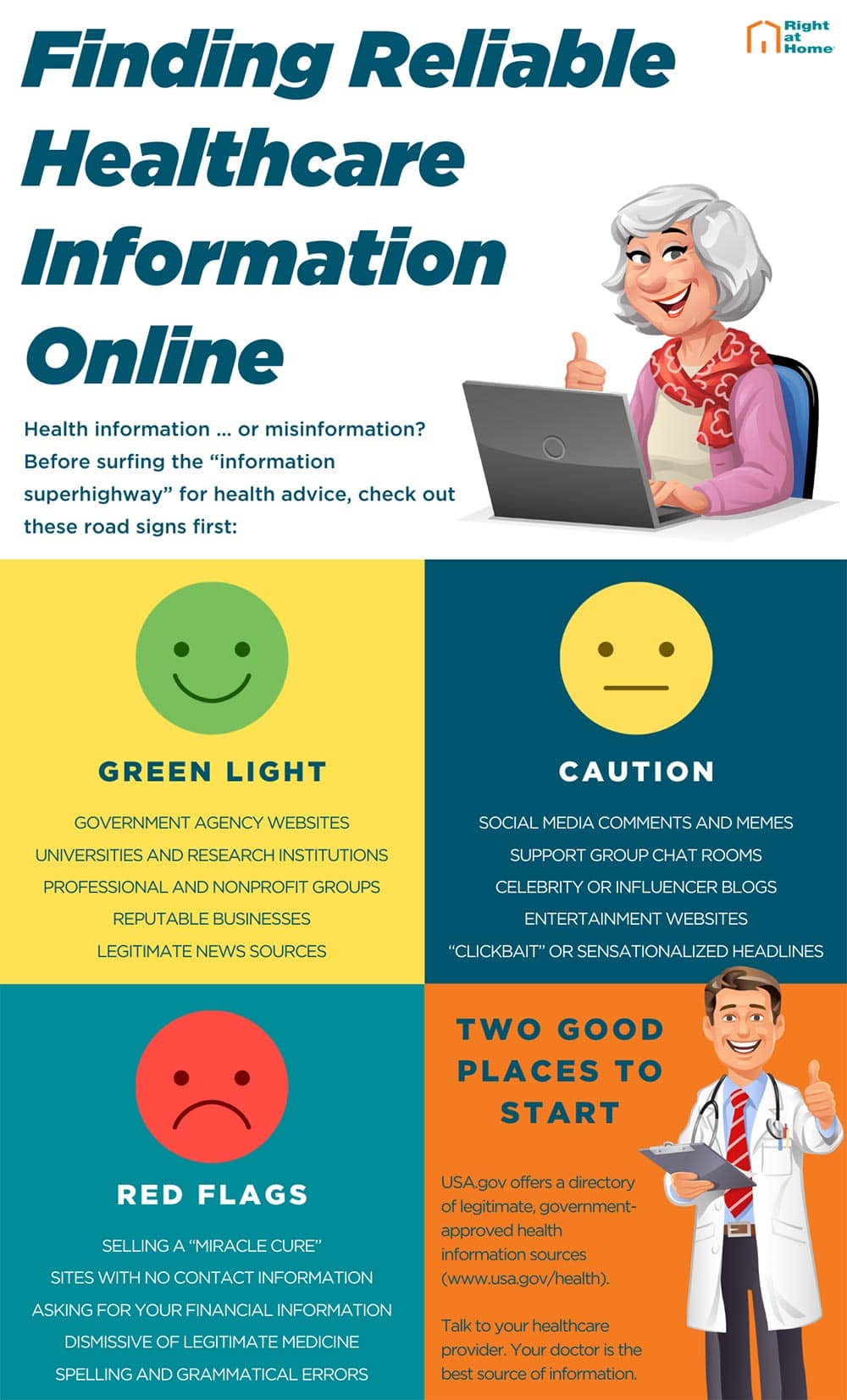

Infographic: Finding Reliable Healthcare Information Online
When it comes to health and wellness, it seems as if everyone has an opinion. But it can be dangerous to listen to the wrong one! How can we tell reliable sources from misinformation? Here is a “cheat sheet” to help.

Health information … or misinformation? Before surfing the “information superhighway” for health advice, check out these road signs first:
GREEN LIGHT
- Government agency websites
- Universities and research institutions
- Professional and nonprofit groups
- Reputable businesses
- Legitimate news sources
CAUTION
- Social media comments and memes
- Support group chat rooms
- Celebrity or influencer blogs
- Entertainment websites
- “Clickbait” or sensationalized headlines
RED FLAGS
- Selling a “miracle cure”
- Sites with no contact information
- Asking for your financial information
- Dismissive of legitimate medicine
- Spelling and grammatical errors
TWO GOOD PLACES TO START
USA.gov offers a directory of legitimate, government-approved health information sources (www.usa.gov/health).
Talk to your healthcare provider. Your doctor is the best source of information.




